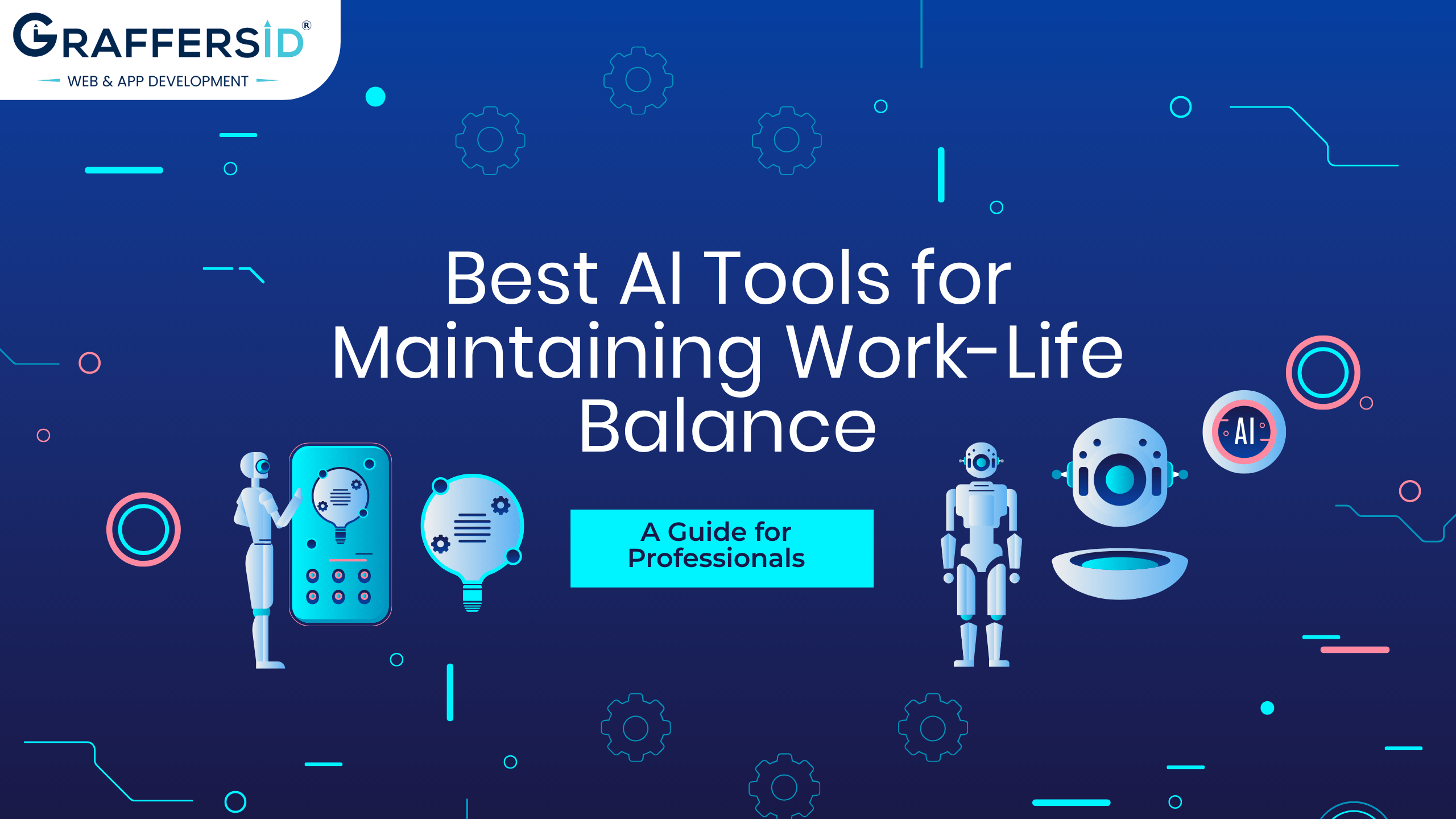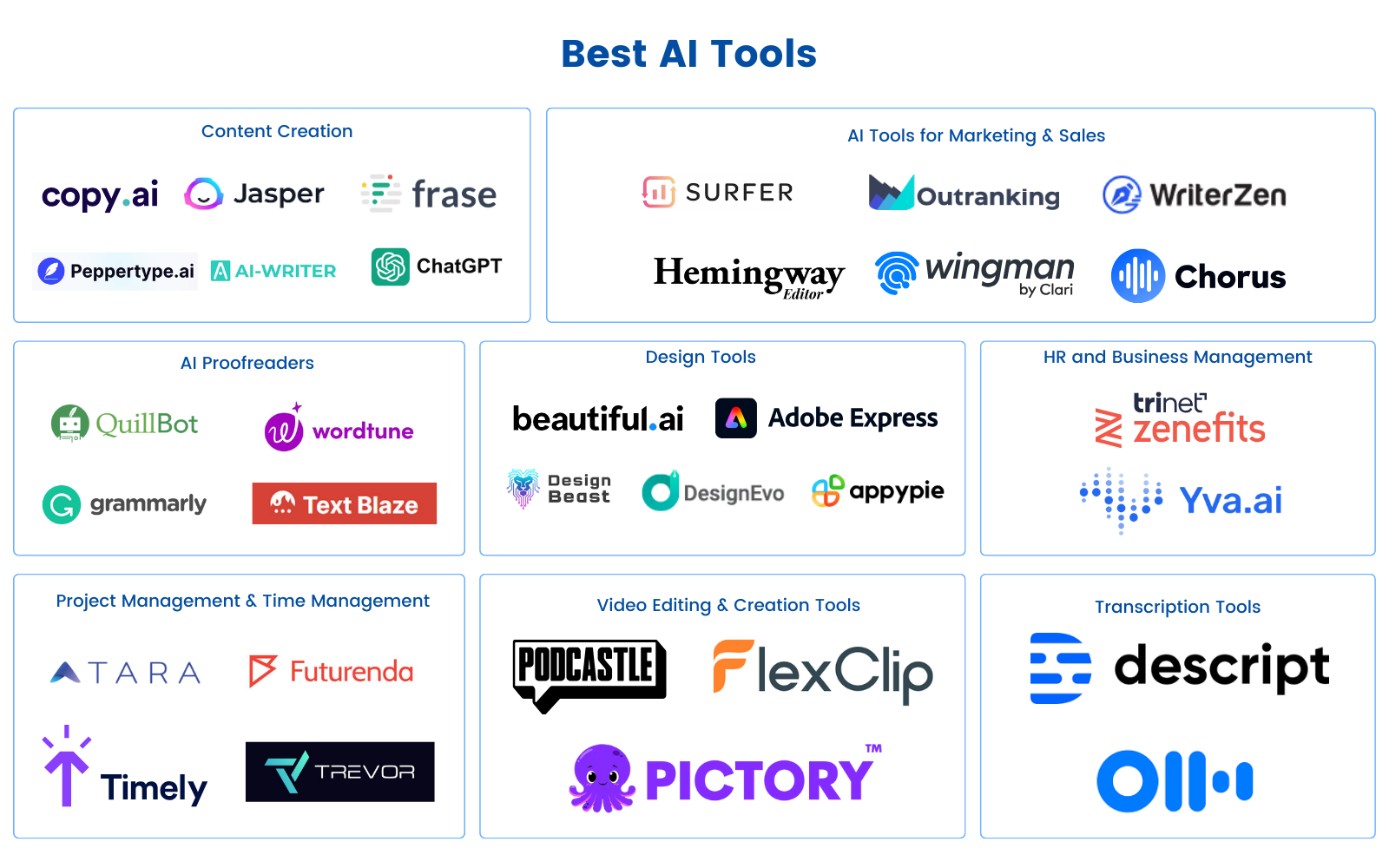The Rise of AI in Remote Work: Enhancing Productivity and Collaboration
The landscape of remote work has been revolutionized by artificial intelligence. AI tools are no longer a futuristic concept but a practical necessity. They enhance productivity, streamline workflows, and foster better collaboration among remote teams. The integration of AI is reshaping how remote workers operate, making it more efficient and effective.
Automating Tasks with AI: A New Era for Remote Workers
AI is transforming how remote workers handle their daily tasks. Automation is at the forefront, freeing up valuable time for more strategic activities. This shift is not just about doing things faster; it’s about working smarter and more efficiently.
AI-Powered Tools for Streamlining Workflows
Several AI tools are designed to streamline workflows for remote teams. These tools can automate repetitive tasks, manage schedules, and even prioritize emails. By integrating these AI solutions, remote workers can focus on core responsibilities, boosting overall productivity.
Automating Repetitive Tasks for Increased Efficiency
Repetitive tasks, such as data entry and report generation, can be time-consuming and demotivating. AI-powered tools can automate these processes, freeing up remote employees to focus on more strategic and creative work. This automation leads to increased efficiency and reduced error rates. For example, Zapier lets you automate workflows across thousands of apps, saving you a lot of time.
Enhancing Remote Team Collaboration with AI
Effective collaboration is crucial for remote teams. AI tools are playing a vital role in bridging communication gaps and enhancing team synergy. They offer solutions for seamless coordination and improved project management.
AI Tools for Seamless Communication and Coordination
AI-powered communication tools can predict and prioritize messages, ensuring important conversations are never missed. These tools also facilitate better asynchronous communication, allowing teams to remain in sync despite time zone differences. AI also helps with real-time translation, bridging language gaps for international teams.
Project Management Software Powered by AI for 2025
Project management software is getting smarter with AI. In 2025, we can expect AI to further enhance project management by automating task assignments, predicting project risks, and providing real-time updates. Tools like ClickUp and Asana are already incorporating AI to streamline workflows and improve team coordination. These tools also help with the generation of task descriptions and the assignment of responsibilities.
AI Writing Tools: Empowering Remote Content Creators
For remote content creators, AI writing tools are a game-changer. These tools assist with brainstorming, drafting, and editing, significantly improving content creation efficiency. They are not meant to replace human creativity but to augment it.
Top AI Writing Assistants for Remote Professionals
Several AI writing assistants are available for remote professionals. Tools like Jasper, Copy.ai, and Anyword can help with generating high-quality content, from blog posts to marketing copy. These tools offer a range of features, including tone adjustment and grammar checks, making the writing process faster and more effective.
Leveraging AI to Enhance Content Quality and Efficiency
AI can enhance content quality by suggesting improvements to grammar, style, and tone. It can also help with SEO optimization, ensuring content reaches a wider audience. By leveraging AI, content creators can produce high-quality work more efficiently, saving time and effort. For instance, Buffer’s AI Assistant can help with repurposing content for different social media platforms.
AI Transcription for Remote Meetings: Capturing Every Detail
AI transcription tools are invaluable for remote meetings. They capture every detail, ensuring no crucial information is missed. These tools enhance accessibility and improve meeting productivity.
AI Tools for Accurate and Efficient Meeting Transcription
AI-powered transcription tools accurately convert speech to text, providing a written record of meetings. This is particularly useful for reviewing discussions, extracting action items, and sharing meeting summaries. Tools like Fireflies and Otter are known for their accuracy and efficiency in transcribing meetings.
Improving Meeting Accessibility and Productivity
AI transcription improves meeting accessibility by providing text versions of discussions, making it easier for participants to review and reference the content. It also enhances productivity by automating note-taking, allowing attendees to focus on the discussion. This leads to better engagement and more effective meetings.
Other AI Tools for Remote Work
Beyond core tasks, various other AI tools enhance remote work in numerous ways. These tools cover areas like knowledge management, scheduling, email management, presentations, and automation.
AI Apps for Knowledge Management
AI apps for knowledge management help organize and retrieve information efficiently. Tools like Mem and Notion AI Q&A use AI to tag, connect, and search notes, ensuring that important information is always accessible. This is crucial for remote teams that need to manage large volumes of data.
AI Scheduling Assistants for Remote Teams
Scheduling meetings across different time zones can be challenging for remote teams. AI scheduling assistants like Reclaim and Clockwise analyze team availability and suggest optimal meeting times, eliminating the back-and-forth of manual scheduling. These tools help streamline the process and ensure that meetings are scheduled efficiently.
AI Tools for Email and Inbox Management
Email management can be overwhelming for remote workers. AI tools like SaneBox and Mailbutler help prioritize messages, filter out spam, and even generate reply drafts, reducing the time spent on email administration. This allows remote workers to focus on more important tasks.
AI for Presentations and Slide Decks
Creating engaging presentations can be time-consuming. AI tools like Decktopus and Beautiful.ai can automatically generate slide decks based on input, saving time and enhancing the visual appeal of presentations. These tools help remote workers create professional and impactful presentations with minimal effort.
AI-Powered Automation Tools for Remote Work
AI-powered automation tools, like Zapier, can connect various apps and automate workflows, streamlining operations. These tools help remote teams manage tasks, share information, and stay productive, regardless of location. By automating repetitive processes, they free up time for more strategic initiatives.

Conclusion: Embracing AI for a Future of Efficient Remote Work
AI is no longer a luxury but a necessity for efficient remote work. By automating tasks, enhancing collaboration, and improving communication, AI tools are transforming the way remote teams operate. Embracing these technologies is crucial for future success in the evolving world of remote work. As AI continues to advance, we can expect even more innovative solutions that will further enhance the remote work experience.
Key Takeaways:
- AI tools are essential for enhancing productivity and collaboration in remote work.
- Automation of repetitive tasks frees up time for strategic activities.
- AI improves communication, project management, and content creation for remote teams.
- AI transcription tools capture meeting details, improving accessibility and productivity.
- Embracing AI is crucial for success in the future of remote work.
